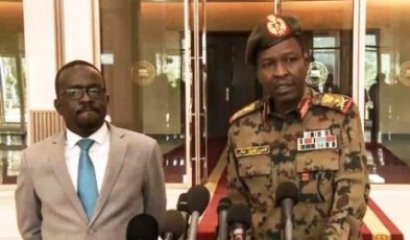Sudan’s military council, opposition forces make significant progress on power transfer talks
May 13, 2019 (KHARTOUM) – The Transitional Military Council (TMC) and the opposition forces of the Declaration of Freedom and Change said they have agreed on the power structures and system of governance and will continue talks on the remaining issues on Tuesday.

The Sovereignty Council has been the sticking point in the discussions between the two sides as the military wanted to keep it for them and to endow it with important powers enabling them to control the action of the government and to dissolve it if needed.
For their part, the opposition said the sovereignty council would have symbolic powers while the government will decide and direct the policy of the nation during the transitional period.
At the end of the first round of talks on Monday, the TMC spokesperson Shams al-Din Khabbashi told reporters that the parties reached an agreement on the governance structures and their powers. He added that talks will resume Tuesday to the handle the percentage of representation of the two sides and duration of the transitional period.
The military spokesperson was flanked by Taha Isaac, a spokesperson of the freedom and changes forces.
Isaac said that the meeting was “fruitful” and the parties reached an agreement on the structures of the transitional authority, which “satisfies the parties and contributes to the realization of the objectives of the revolution”.
In a briefing to the sit-inners in Khartoum on Monday evening, another opposition spokesperson and deputy leader of the Sudanese Congress Party Khalid Omer confirmed what Khabbashi said and stressed that the Sovereignty Council will have symphonic powers.
“The Sovereign Council has symbolic powers without executive or legislative powers. The Government will be entirely civilian with full executive powers. Also, the legislature will be formed of civilians and has absolute legislative powers,” Khalid said.
Monday’s progress, if confirmed on Tuesday, will allow the parties to move towards the formation of the transitional institutions as the political vacuum has affected the political stability in the country one month after the fall of al-Bashir’s regime.
It is agreed that the freedom and change groups have succeeded to show the needed unity and cohesion before to bring the military council to collaborate with them.
Also, the counter-revolutionary activities carried out by the partisans of the former regime have convinced the military council to make the needed concessions to the opposition groups as they are facing another threat from the armed elements of the National Congress Party known as “shadow brigades” or “Popular Security”.
The African Union’s Peace and Security Council has given the military junta a two-month delay to transfer power to civilians.
(ST)
